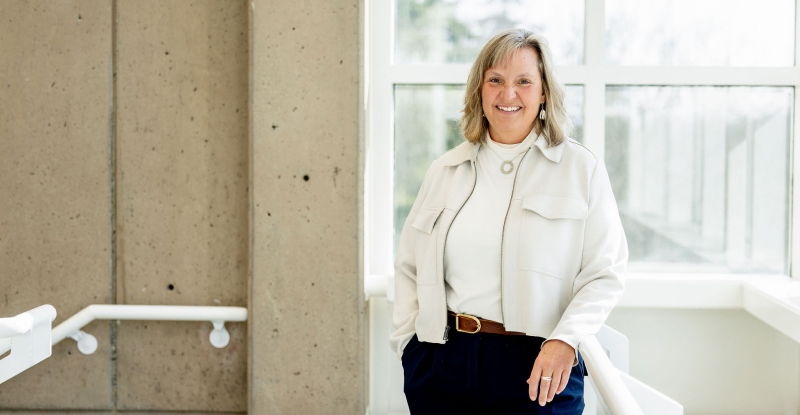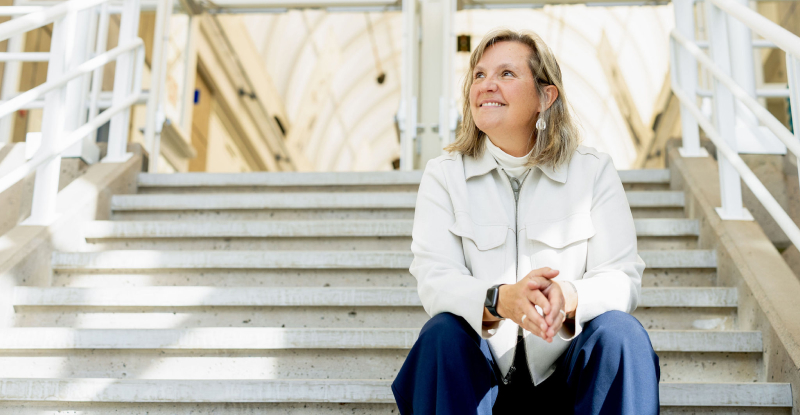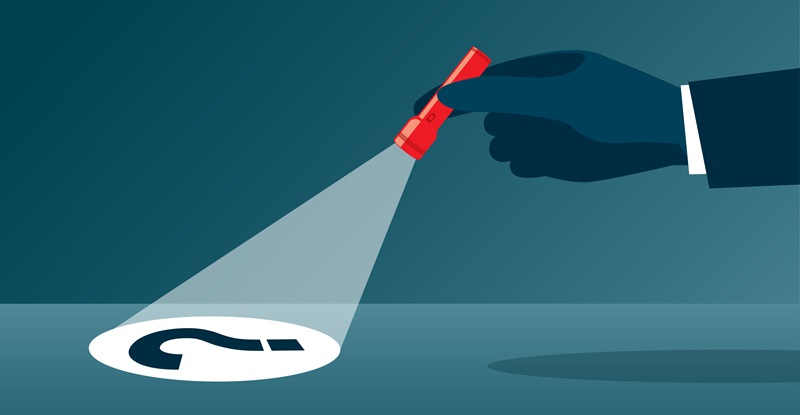
In this podcast episode, Kerri Brkich, CPABC’s vice president, external affairs and communication chats with Martha Okot Thomas, CPA, CA, an accounting and finance educator at Camosun College about neurodivergence at work and the benefits of being “different.” Part of our Coffee Chats with CPABC podcast series.
As part of CPABC’s commitment to creating a profession that is diverse, equitable, and inclusive for all, we continually seek to understand and share the diverse stories of our members. This includes members who are neurodivergent.
Generally speaking, being neurodivergent means “having a style of neurocognitive functioning that is significantly different from what is considered ‘typical’ by societal standards.”1 One of the mostly commonly diagnosed and recognized forms of neurodivergence is Attention Deficit Hyperactivity Disorder (ADHD), which affects an estimated 1.8 million Canadians—roughly one in every 21 people in the country.2
Among them is CPABC member Martha Okot Thomas, CPA, CA, CIA, an accounting and finance educator and chair of the finance and accounting department in the School of Business at Camosun College. Martha has more than 25 years of experience in the public sector, which includes working in internal audit for the BC Investment Management Corporation, serving as CFO for the BC Ministry of Social Development and Social Innovation, and serving as director of financial planning for the Ministry of Finance. She has taught courses for CPABC’s PD Program, is a past member of the CPABC Board of Directors, and currently chairs the CPA Education Foundation of BC. She’s also the mother of two daughters.
Martha recently sat down with me to talk about the impact of her ADHD diagnosis and how if feels to navigate a predominantly neurotypical professional world.
Kerri: You were recently diagnosed as neurodivergent. Can you tell us how that came about?
Martha: It’s interesting—I’ve always known that there was something different about me. And one night a friend asked if I’d ever looked into the possibility of being neurodivergent. I had never really thought about it before, but as soon as she said it to me, I thought, “This makes so much sense.” So I went and I had a full diagnosis done with a proper psychologist.

Kerri: What was the actual diagnosis?
Martha: 100% ADHD. There are two kinds of ADHD: one with a predominance in inattention and one with a predominance in hyperactivity and impulsivity. I had a combined assessment. By that point, I wasn’t surprised—after reading about ADHD, I actually approached them and said “There’s no question in my mind that I have this.”
Kerri: Prior to this diagnosis, did you think certain aspects of ADHD were character flaws?
Martha: Yes. I think I always thought I was broken—that something was wrong with me because I always found it challenging to fit in or behave in certain ways. The world is neurotypical-centered, and if you stray from that, your behaviour can be judged as inappropriate. So, I spent many years managing all of the emotions that I now understand come along with having ADHD without knowing what caused them. It’s called “masking,” which means containing emotions and altering behaviour to appear acceptable. And honestly, it’s exhausting.
Also, the challenge of being a female when I grew up was that I was just seen as emotional and reactive, which ultimately led to me being diagnosed with anxiety and depression. So when people ask, “How did you not know?” I say it’s because nobody ever looked at me that way. As a result, I had the constant stress of feeling like I needed to behave in a certain way to fit in and to be understood. No wonder I had anxiety and felt depressed!
Kerri: That’s mental energy that you can’t put into other areas.
Martha: Yep. And the biggest challenge was that I’d get a lot of praise for my boundless energy but then get labeled as the “gifted problem child.” People knew I was smart and capable, but they’d end up tiptoeing around me. Things would have been so different, I think, had I understood what was happening, because I wouldn’t have tried to fight it all the time. I would have understood why I was reacting in certain ways and known that I could get through a situation without bursting into tears or behaving in other ways that weren’t effective.

Kerri: Is that what this diagnosis has done for you?
Martha: Yes, it has provided absolute clarity. Having a name for what I was experiencing brought me a sense of release and relief. First and foremost, I now know I’m not broken. My coach said I’m now driving with both hands on the steering wheel, which feels appropriate. I’m no longer fighting to contain my emotions now—I know why I have them and what they mean. I’ve also done a lot of counselling and put the work in to understand the ways I used to compensate and mask my emotions to be effective.
Kerri: Do you think things would’ve been different if you’d been diagnosed as a child?
Martha: I promised myself I wouldn’t go down the “what if I’d known” rabbit hole—it’s not productive. So I’m in a process right now where I’m kind of reframing my past experience. I’m looking back and realizing just how much work I’ve done and how much effort it took for me to do what I’ve been able to do. I’ve been quite successful in many of my endeavours, and I’m proud of that, especially because I now realize what I was overcoming.
Kerri: Are there still some challenges? Are there benefits?
Martha: The main challenge is that, as I said before, society is neurotypically centred, and if you move away from that centre, it can throw people off. So I think part of the challenge is still being able to be effective and heard—to be accepted or acceptable. Another challenge is that ADHD is considered a disorder, which is kind of a double-edged sword. It needs to be classified as a disorder so people can get the resources they need, but the word “disorder” can be a hard one to see past.
The benefits, though, are that I have an incredible amount of positive energy, some very unique perspectives, and the ability to survive some really difficult situations. I’m not going to say that I haven’t hit some low points, but I’ve managed to be very resilient—not only for myself, but also for my two girls.
Kerri: What would you most want people to know about neurodivergence?
Martha: There’s still a misconception that ADHD is only diagnosed for hyperactive little kids, but I think perceptions are changing, particularly as this area of knowledge continues to expand. Still, I wish that people were more open to differences, including in professional environments. There’s this idea that we’ll be more effective and efficient if we all act the same way. There’s some truth to that, but I think we risk stifling creativity, imagination, and ingenuity when we try to fit everybody into the same box.
Also, it’s important to not lump everybody with ADHD into one bucket. We all experience it and manage it differently.

Kerri: Has being neurodivergent affected your career path?
Martha: Definitely, and in a positive way. I’m willing to see things from a different perspective, so I’m willing to approach things differently, and I think that has worked in my favour. But it took a lot of work to get to a place where I could be as effective as I am. And I think part of the reason for my success was not only that I knew how to get the system to work for me, but also that I was able to find people who appreciated who I was and how I presented.
Where I work now, I feel incredibly supported, which is a huge relief.
Kerri: What can employers and other professionals do to provide the kind of support you’ve described?
Martha: I think it’s important to create a culture where people feel safe to express an emotion or difference of opinion without being judged. People in the professional sphere often get stuck in their ways, because everybody’s so busy and time-bounded, but embracing diversity means acknowledging that different people bring different strengths to the table. Creating a supportive culture also makes people more productive. I know I’m incredibly productive when I feel I’m being supported—it sounds simple, but it’s true.
Part of the challenge, I think, is that we’re all taught that some behaviours are acceptable and some aren’t. So, when faced with situations where people are behaving in ways we’ve always been told were unacceptable, we tend to want to shut them down. If, instead, we could be a little more introspective and ask ourselves if there’s value in what the individual is actually saying, we might see that they have something to contribute. Maybe there’s a particular point they’re trying to make, but they’re not articulating it effectively.
If, instead of feeling put off, we could take a step back and create space for them, we might uncover some incredible creativity and some genius ideas.
Kerri: What would you say someone who’s worried about potentially being neurodivergent?
Martha: I’d say that you can still be successful. You can still live your life. You can still do what’s important to you and be neurodivergent at the same time. Instead of seeing it as an obstacle, find a way to celebrate it as your superpower!!
Kerri: Thank you for sharing your story with us, Martha!
All photos courtesy of Brit Kwasney Photo.
Kerri Brkich is the vice-president of external affairs and communications at CPABC.
Footnotes
1 Canadian Centre for Diversity and Inclusion
2 Centre for ADHD Awareness, Canada, “About ADHD,” caddac.ca.



